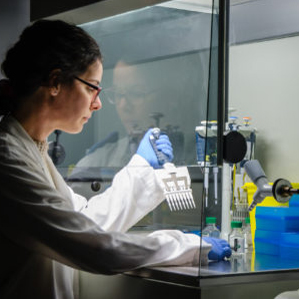
Atherosclerosis: A Cause of Many Disorders
Atherosclerosis, a chronic condition characterized by the accumulation of lipids and fibrous elements in the arteries, is the major cause of cardiovascular disease [1]. Given today’s epidemiological situation, it should be mentioned that people with pre-existing cardiovascular disease appear to be at a higher risk of developing complications of COVID-19 [2]. A healthy diet is one way to reduce the risk of developing atherosclerosis. Specifically, research with mouse and rat models has shown that there might be a special advantage of bioactive peptides that can be found for instance in organ meats.
Atherosclerosis develops progressively, and over time, plaques harden and narrow the arteries, which reduces the flow of oxygen-rich blood to the organs. Any artery in the body can be affected, including arteries in the heart, arms, legs, kidneys, and brain. This can lead to different disorders, such as ischemic heart disease, stroke, pain and infections, or chronic kidney disease.
The main risk factors of atherosclerosis are high cholesterol blood level, high blood pressure, smoking, diabetes, obesity, older age, family history of heart disease, lack of physical activity, and inflammation [3]. Most of these risk factors can be controlled so that atherosclerosis can be delayed or prevented.
Common Dietary Recommendations to Prevent Atherosclerosis
Diet is an important lifestyle change that can help to prevent or treat atherosclerosis. The Mediterranean diet – which is a plant-centered diet with high intakes of vegetables and fruits, whole-grain cereals, extra-virgin oil, nuts, moderate consumption of fish and poultry – is very effective to support the health of cardiovascular system [4].
Abundant literature suggests the beneficial properties of numerous vitamins, minerals, and other plant and animal-derived compounds in the prevention and management of atherosclerosis. Until now, most research has focused on substances that reduce cholesterol levels, which is an important risk factor for atherosclerosis. Some components of the Mediterranean diet have been specifically studied to reveal the mechanism of their action. For example, soluble fibers that are found in fruits, beans and oats can mechanically bind bile acids in the intestine. This leads to increased bile acid synthesis and reduction in liver cholesterol content. Consumption of sufficient amounts of fiber is also associated with optimal functioning of gut microflora, which actively participates in cholesterol metabolism. In addition, cholesterol absorption can be reduced by plant sterols and stanols, that can be found for instance in vegetable oils. These substances have structure similar to cholesterol and compete with it in the absorption mechanisms, which means that less cholesterol is absorbed from the intestines into the blood. Lastly, omega-3 fatty acids protect against inflammation and binding of cholesterol to the arterial wall.
Diet-Derived Peptides – New Dietary Components to Prevent Atherosclerosis
Traditionally, it was considered that during digestion all peptides and proteins are broken down to amino acids and that only amino acids are capable of absorption in intestines. Therefore, proteins were viewed just as a source of building blocks for the body. However, there is enough evidence now that many peptides do cross the intestinal wall, enter the circulation, and modulate body functions [5]. Bioactive peptides are typically relatively short, consisting of 2–20 amino acids. They can be derived from proteins by enzymes inside or outside the body, but also by heat, chemical treatments, or microbial fermentation.
Recent studies suggest a potential role of bioactive peptides derived from different plant and animal sources as components of an anti-atherosclerotic diet. Although meat is consumed by the majority of people, animal by-products are often wasted, and the development of functional products on their basis is very relevant to the food industry. As an example, a functional food product made of porcine aorta, and cattle hearts was recently studied in a rat model of atherosclerosis [6]. First, rats were fed with the high fat and high cholesterol diet and injected with vitamin D2 to induce alimentary hyperlipidemia (abnormal high-fat levels in the blood). Then, animals were given either a mixture of the functional organ meat product with the standard laboratory diet or the standard diet alone. As a result, bioactive peptides, derived from this functional product during tissue processing and digestion, normalized blood cholesterol levels, and decreased inflammation.
Peptides derived from eggs, milk, fish, soy, and rice are also extensively investigated for their possible antioxidant and anti-inflammatory properties, which can be effective for the treatment of atherosclerosis [7]. Although some of them were studied only in cell cultures, short egg- and soy-derived peptides have shown antihypertensive properties in animal models as well.
To sum up, bioactive peptides are an attractive option for dietary management and prevention of atherosclerosis. Future studies are needed to reveal molecular mechanisms that underlie the promising results observed with these peptides.
